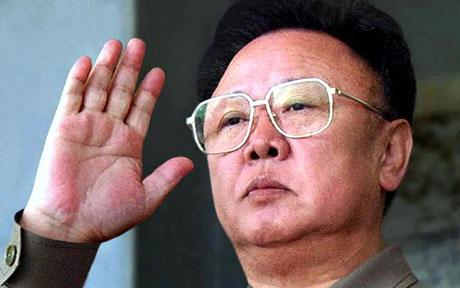The Peninsula
10 Issues to Follow After Kim Jong-Il

By Troy Stangarone
The sudden death of Kim Jong-Il has created the potential for significant uncertainty surrounding both the North Korean leadership and North Korean intentions. While all signs pointed to Kim Jong-un as the designated heir after the 2010 Party Conference, it is unclear if the succession process has fully taken hold and how much internal support Kim Jong-un has for his leadership going forward. As this process plays out with interaction both internally and externally over the coming weeks and months, here are ten issues that will likely provide insight into how the process is unfolding:
Internal Issues
1. The Stages of Succession – While Kim Jong-Il had seen to it that Kim Jong-un was promoted to four star general in 2010, along with other positions within the party, he has not had the time or ability to build the ties that his father acquired on his way to power by placing key individuals loyal to him in position of authority. What is unclear at this moment is what steps may still need to be put in place a completed succession of power from Kim Jong-Il to Kim Jong-un, but there are early indications that Kim Jong-un will rule as part of a collective leadership with the military rather than on his own. If that is the case, he will likely serve more as a figurehead for a collective government, at least in the near term.
2. The Dynamics Between the Heir and the Regent – When Kim Jong-Il first became ill during 2008, Jang Song Taek and Kim Kyong Hui served as co-regents for Kim Jong-un. It is unclear if they will continue to serve in that capacity, but because of Jang’s support within the military and ties to China, he could see himself in a guiding role. Will he try to assert his authority and will Kim Jong-un resist?
3. What is the Potential for a Coup? – Because of his young age and unsecure hold on power, Kim Jong-un may be vulnerable to a coup either from within the military or from someone well connected such as Jang Song Taek. However, if indications of a collective leadership in Pyongyang are accurate, it would reduce the prospect of anyone trying to seize power.
4. Who Will Be the Key Players in Succession? – However the process unfolds, it will be driven by a small number of elites who will guide the process. Identifying those individuals and tracking their actions will be key for follow the transition.
5. Defections and Purges – Be they high level officials or an increase in ordinary individuals crossing the border into China, defections could be the proverbial canary in the coal mine that the succession is faltering or that the new regime is planning major changes. Purges could be a similar indicator for the future of the regime if they are for reasons of insufficient loyalty or policy preferences.
6. The Strong and Prosperous Nation – Next year will provide the regime with public opportunities to present a confident and stable front to the world. While this was always going to be an exercise in propaganda, festivities tied to North Korea being a strong and prosperous nation will provide the regime with opportunity to present a confident and stable image to the outside world.
External Issues
1. How Seoul Reacts –As would be expected, South Korea placed its military on high alert after news of Kim Jong-Il’s death. If South Korea maintains a heightened posture or takes actions that seem to bolster its defenses against North Korean provocations, it would indicate that Seoul is not yet convinced that the transition will lead to stability in North Korean.
2. What Steps Does China Take? – China will be a key player in all of this and there are already indications that it’s inserting itself into the process by deepening contacts with North Korean officials, especially in the military. While China is unlikely to be able to control the transition, it may be able to provide key support should there be problems in the transition.
3. The Next Moves on the Six Party Talks – Just before Kim Jong-Il’s passing there were indications that talks over North Korea’s nuclear program could resume shortly. If Pyongyang were to engage on this issue and the United States take part, it would be a sign that the new regime is confident in its position and that the United States believes its dealing with a stable regime.
4. The Politics in South Korea – The death of Kim Jong-Il comes as South Korea prepares to gear up for a year of elections. North Korea is always a significant topic in Korean elections and depending on how the transition occurs it could play an outsized role in National Assembly elections in April and presidential elections in December.
Troy Stangarone is the Senior Director of Congressional Affairs and Trade for the Korea Economic Institute. The views expressed here are his own.
Photo by Zennie Abraham
